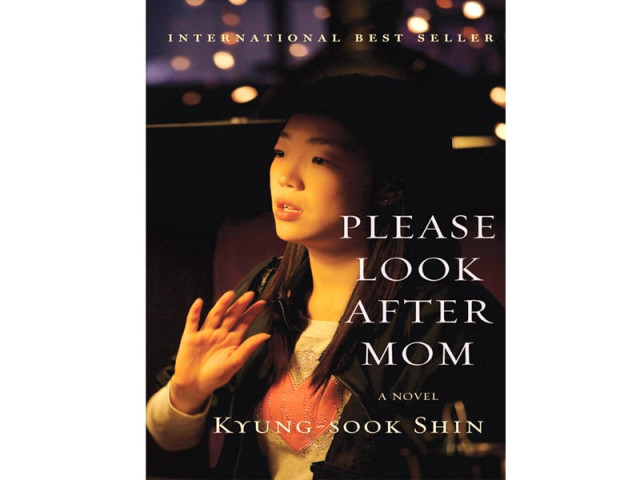Book review: Please look after mom - have you seen my Mom?
Her pain is visceral as she treads through the time periods, conversations, and memories of her mother.

Book review: Please look after mom - have you seen my Mom?
Book: Please Look After Mom
Author: Kyung-sook Shin
Translated from the Korean by: Chi-Young Kim
Genre: Fiction
Publisher: Alfred A. Knopf (2011)
Excerpt:
“You never stopped calling her Mom. Even now, when Mom’s missing. When you call out “Mom” you want to believe that she’s healthy. That Mom is strong. That Mom isn’t fazed by anything. That Mom is the person you want to call whenever you despair about something…”
Their mother has disappeared from a train station in Seoul. Their parents were coming from the Korean countryside for a visit to their children in the city. The children put on a desperate search — they distribute flyers, seek out clues, turn to the police and to passersby, but Mom is nowhere to be found. Kyung-sook Shin’s novel, Please Look After Mom, is the first of her books to be translated into English. Immensely popular in Shin’s home country of South Korea, the novel has received both acclaim and criticism in the U.S.
Crafted into four parts, each one reflecting a different character’s perspective, Shin has written at least half of the novel in the second person narrative — a style that lends itself well to each character’s self-reflective and at times, self-effacing inner dialogue. The first part belongs to Chi-hon, the elder daughter and a well-known novelist, who reflects on the events since Mom’s disappearance. Her pain is visceral as she treads through the time periods, conversations, and memories of her mother. Deep in her ruminations is the guilt she feels over her recurring terseness and dismissal of Mom’s concern, of Mom’s ignorance and illiteracy. Shin has weaved together a quiet irony in Chi-hon’s relationship with her mother. Chi-hon has chosen a career as a novelist while her mother has never had the opportunity to become literate.
The next part focuses on Hyong-chol, Mom’s elder son and also her favourite child. Hyong-chol’s account, though not written in the second person, is just as reflective and emotionally jarring as his sister’s. At the heart of his reflection on his relationship with his mother is the feeling that he ultimately let her down by not understanding that her dreams for him were perhaps her dreams for herself. While Hyong-chol becomes aware of this after Mom’s disappearance, we also learn that Mom held her own guilt towards Hyong-chol, which she attempted to vocalise, if only he was paying attention.
Similarly, their father realises his mistakes and the ways in which he took his wife for granted. His insensitivity and wrongdoing further highlight Mom’s incredible strength of character and the ways in which she remained emotionally isolated for most of her life.
In the final part of the novel, we hear from Mom herself, acutely providing more insight to her life. At 17 she devoted her life to her husband and eventually to her children; a story not uncommon in Eastern cultures. Mom’s reflections are perhaps the most evocative and soulful pieces of the novel. As the story unravels from each differing perspective, you learn the secrets and truths that define each character and the family as a whole. At the backdrop is the history of South Korea and intertwined are themes of war, loss of innocence, and heritage.
Some reviews by critics in the U.S. have referred to Please Look After Mom as a “soap opera,” “melodrama,” and a “guilt-laden morality tale.” Self-inflicted guilt on account of one’s mother is a raw and authentic part of Eastern cultural identity (this is so in a number of other cultures as well) where mothers of prior generations may have suffered silently in many respects while dedicating their life to their children. Their ordeals and sacrifices are far more than just melodrama. The guilt is necessary perhaps to remind us of our responsibilities — to hold us accountable.
In the Eastern world, as is demonstrated by the popularity of the novel in South Korea and the numerous other languages in which it is set to be translated, Shin’s story is not only credible and compelling, but also an opportunity to reflect, remember, and maybe even repent. In a poignant final scene of the novel’s Epilogue, Chi-hon surrenders herself before the Pietà in the heart of the Vatican. It is here that her belated order to look after Mom becomes a plea and a prayer that stirs and resounds long after you have put this novel down.
Published in The Express Tribune, August 20th, 2011.



















COMMENTS
Comments are moderated and generally will be posted if they are on-topic and not abusive.
For more information, please see our Comments FAQ